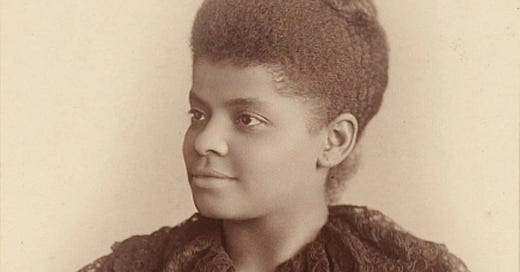Beware of Historical Appropriation
You cannot claim the racial justice actions of the few if you refuse to acknowledge the racist actions of the many.
Thanks so much for making the launch of The Spirit of Justice so successful. As a special “thank you” I’m offering a free 30-day trial to this Substack. Subscribe today!
The following is an excerpt from my new book The Spirit of Justice: True Stories of Faith, Race, and Resistance. Get your copy HERE.
Every year at the end of October, kids and adults alike cover their faces in paint, search the internet and pop-up stores for outfits they wouldn’t wear any other time of year, and pretend to be someone or something else for Halloween.
In years past, people thought nothing of smearing their faces with brown or black paint to pretend to be a Native American or a person of African descent. They wore clothes, teeth, noses, and makeup in garish caricatures of actual people and cultures.
These costumes often played on racist tropes and perpetuated harmful prejudices. Insensitive choices for Halloween costumes is just one example of cultural appropriation.
Cultural appropriation means claiming aspects of a culture other than your own without offering the respect, dignity, and understanding due to the people who inhabit that culture and its practices.
Just as there is cultural appropriation, there can also be historical appropriation: the attempt to claim the heroic historical actions of the few to downplay the atrocious actions of the many.
As cultural appropriation selectively adopts the most visible or celebrated parts of a culture one cannot rightfully claim, historical appropriation involves picking and choosing which historical figures and events to claim in order to create a more valorous version of the past.
You try to make the struggles and triumphs of people who fought against racism and white supremacy your own, even if your community had no part in that resistance.
In fact, historical appropriation is most tempting to those whose political, theological, and economic lineage not only ignored racial justice but actively supported racist beliefs and actions.
Many Christians like to claim John Newton, the British pastor and songwriter who wrote the hymn “Amazing Grace,” as part of their spiritual heritage.
Newton was a slave-ship captain who became a Christian and eventually became an outspoken abolitionist. Christians today point to Newton as an example of how Christianity redeems and reforms individuals and serves as a force for racial justice.
Yet they fail to acknowledge two realities.
First, Newton remained a slave-ship captain for years after his conversion. He did not immediately see his profession as a contradiction to his faith because it was far more socially acceptable for him to be a proslavery Christian than an antislavery one.
Second, people who claim Newton today fail to follow his example. After he eventually changed his views on slavery, he was not quiet about it. Newton wrote an entire public pamphlet in support of changing laws to promote racial justice and abolish the slave trade.
Historical appropriation occurs when you celebrate John Newton’s redemption arc of moving from slave-ship captain to abolitionist and yet refuse to emulate his public support of racially progressive policies.
Oftentimes, people who point to historical actors such as John Newton are trying to claim that the preponderance of Christian history in the United States shows Christians resisting racism.
Yet while the historical record reveals that many Black Christians and other exploited groups stood up for justice, most white Christians demonstrated compromise and complicity with racism.
Those who courageously confronted injustice were the exception, not the norm.
In a book like The Spirit of Justice, which discusses people who struggled against racism, it would be easy to say, “See! Christians aren’t all bad. Sure, some of them were racist, but most were decent folks who did the right thing. Let’s just celebrate them and not focus so much on a few ‘bad apples.’”
Such sentiments ignore the host of Christians who looked the other way or actively participated in racism. Do not claim the historical legacy of antiracists if you are not also willing to claim and contend with the legacy of racists in your own tradition.
The best way to celebrate the struggle of those who came before us is to acknowledge the truth, learn from it, and act on it. If your Christian tradition has historically supported slavery, segregation, and racism, then admit it.
You cannot claim the antiracist actions of historical actors if you refuse to acknowledge the many others in your faith tradition who were the source of racist ideas and behaviors. Beware of historical appropriation.






Thank you for explaining historical appropriation. I gew up in a tradition that revered John Newton- Amazing Grace was a favorite for my congregation. Thank you for reminding me that it’s the moving from contemplation to action that works for justice.
Thank you for this. I had never considered the concept of historical appropriation. I can see how that can be a problem in so many contexts. Your writings continue to inform my own thinking and work.